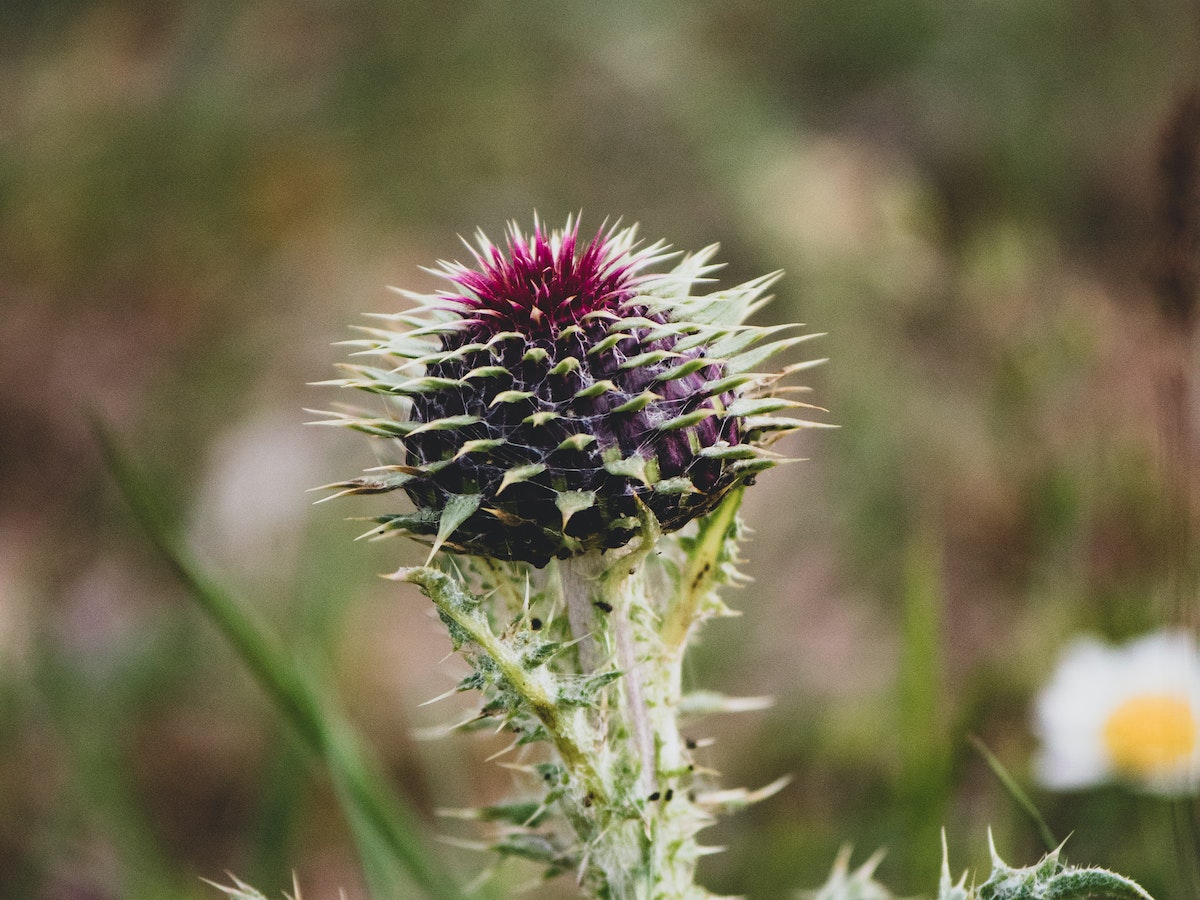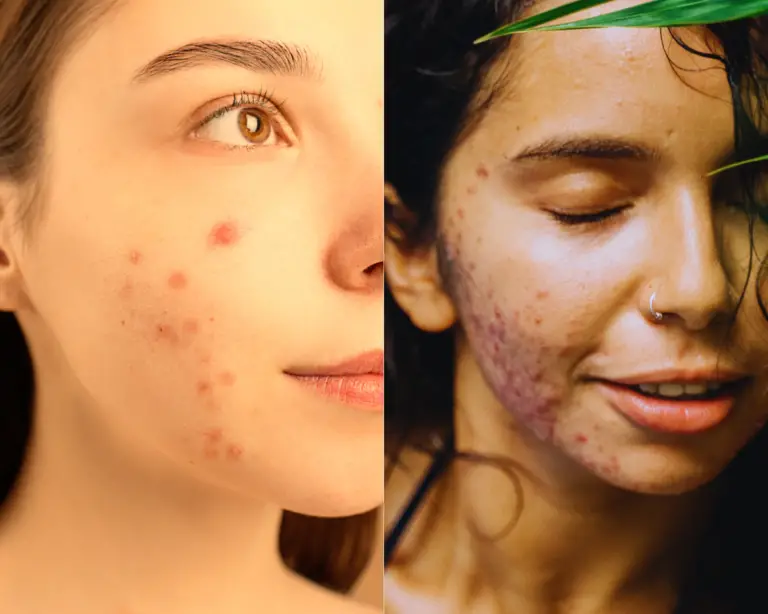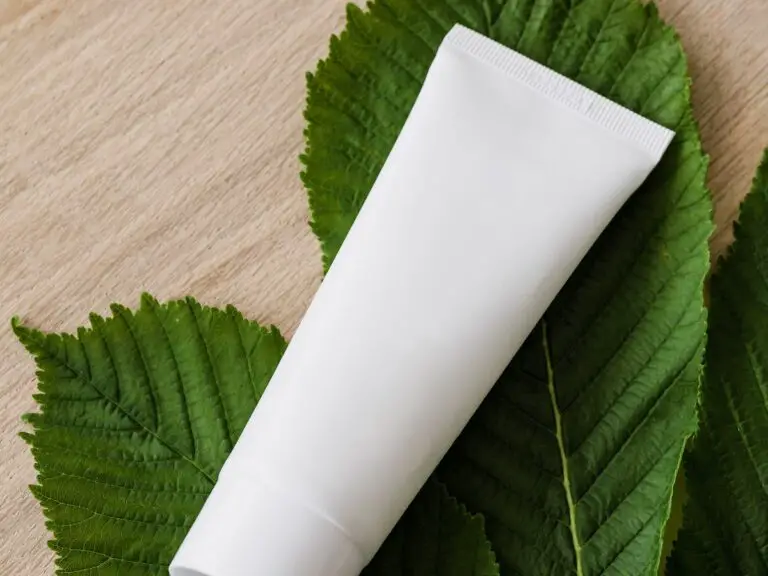How to Use Milk Thistle for Hormonal Acne
Medically Reviewed by;
Dr. Kashif
General Physician
Senior Medical Writer
Are you sick of dealing with the frustrating and long-lasting issue of hormonal acne? Milk thistle is a powerful natural remedy becoming increasingly famous because it can help treat this common skin condition. Hormonal acne can really make you feel bad about yourself and make you feel stressed. But if you take the right steps, you can control and even get rid of those annoying spots.
Milk thistle, also called Silybum marianum, is a flowering plant used as medicine for hundreds of years. It is a powerful liver cleanser and antioxidant, and it also helps control hormone levels in the body. This makes milk thistle a great choice for hormonal acne.
In this piece, we’ll talk about how milk thistle helps hormonal acne, its benefits, and how to use it to get clearer, healthier skin. Milk thistle can help you get rid of acne caused by hormones and give your skin a healthy glow.
Table of Contents
Understanding Hormonal Acne
Hormonal acne can be especially bothersome. Most of the time, hormonal acne is caused by an excess of hormones, particularly a rise in androgens like testosterone. These changes in hormones can cause more sebum to be made, plugged pores, and inflammation, which can lead to those annoying breakouts.
Most of the time, hormonal acne is marked by deep, painful pimples that don’t respond to regular acne treatments. Even though hormonal acne is most common during puberty and youth, it can also happen to adults, especially women, at certain times of their menstrual cycle or when they are pregnant.
What is Milk Thistle?
The formal name for milk thistle is Silybum marianum. It is a herb with flowers that is in the daisy family. It has been used in traditional medicine for hundreds of years because it is good for your health in many ways. Silymarin, the main ingredient in milk thistle, is a strong antioxidant that protects the liver from damage caused by toxins and free radicals. Milk thistle is native to countries in the Mediterranean, but it is now grown all over the world for its medical uses. It can be found in pills, extracts, and teas, among other things.
In recent years, milk thistle has become more famous because it might help treat health problems like liver disease, diabetes, and high cholesterol. It’s a nice natural option for treating hormonal acne because it helps reduce inflammation and promotes the liver’s cleansing process.
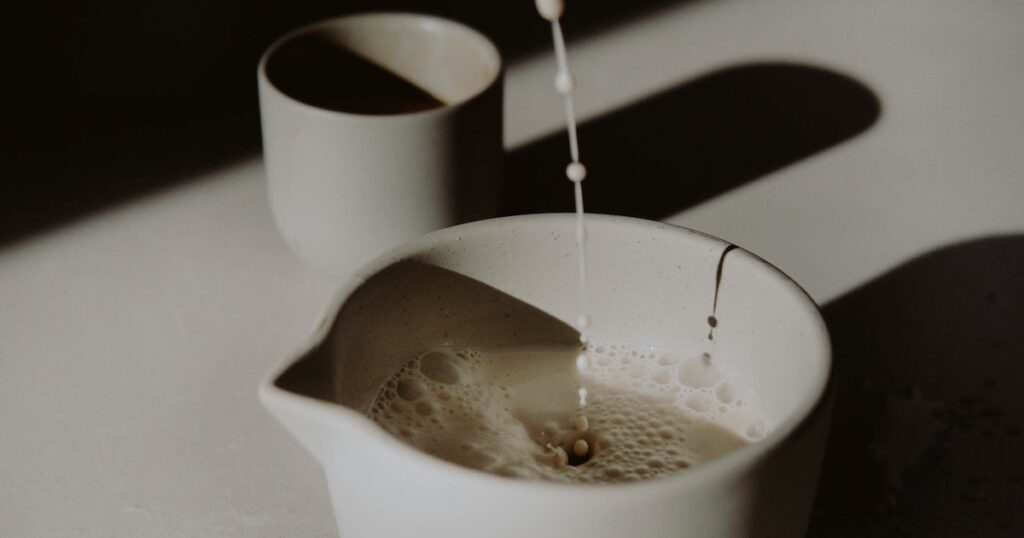
Benefits of Milk Thistle for Hormonal Acne
Milk thistle might help people with hormonal acne in a few different ways. Let’s examine how this powerful herb can help your face more closely.
1.Regulates Hormone Levels
One of the main causes of acne caused by hormones is an excess of hormones, especially androgens. Milk thistle has been shown to help control hormone levels by stopping an enzyme called aromatase from turning androgens into estrogen. Milk thistle can help keep your hormones in balance, reducing the amount of oil your skin makes and making it less likely that your pores will get plugged or that your skin will get inflamed. This means you will have fewer breakouts.
2. Reduces Inflammation
Acne is caused in part by inflammation. Milk thistle has powerful anti-inflammatory chemicals, like silymarin, that can help lessen the redness, swelling, and irritation of acne. Milk thistle can help speed up healing and prevent acne from returning. It does this by calming the skin and lowering inflammation.
3. Supports Liver Detoxification
The liver is very important for keeping hormones in balance and eliminating waste. Milk thistle has been used for a long time as a liver booster and cleanser because it protects liver cells and helps them grow back. Milk thistle helps the liver work better, making it easier for the body to eliminate toxins and hormones. This can lead to clearer, healthier skin.
4. Boosts Antioxidant Defences
A potent antioxidant, milk thistle aids in defending the skin from the harm that free radicals can cause. Free radicals can hurt skin cells, cause redness, and speed up aging. By strengthening your skin’s antioxidant defences, milk thistle can help stop acne spots from forming and make your skin look younger.
How Milk Thistle Works to Alleviate Hormonal Acne
Now that we know what milk thistle can do for hormonal acne, let’s look at how it helps treat this common skin problem.
When milk thistle extract is eaten, it goes into the bloodstream and ends up in the liver, where it has its healing benefits. Milk thistle has many active chemicals, but silymarin is thought to be the most powerful. Silymarin helps keep liver cells from getting hurt, speeds up their repair, and helps the liver get rid of toxins. Milk thistle helps the liver work better, which helps get rid of toxins and extra hormones that can cause hormonal acne.
Milk thistle not only helps protect the liver, but it also helps control hormone levels. Milk thistle helps keep hormones in balance by stopping the enzyme aromatase from turning androgens into estrogen. This reduces the amount of sebum your skin makes and makes it less likely that your pores will get plugged or that your skin will get inflamed. This makes your skin clearer and healthier.
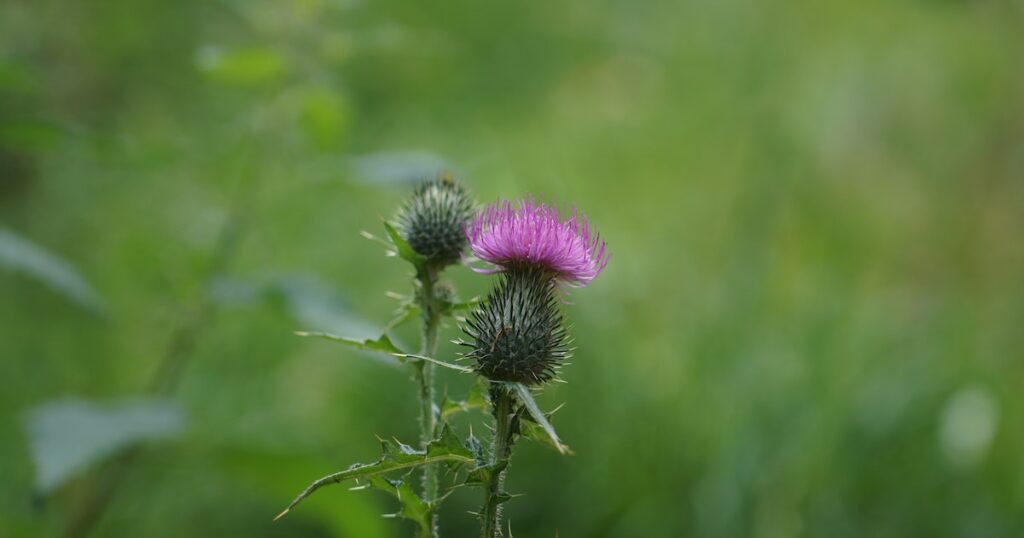
Research and Studies on Milk Thistle for Hormonal Acne
According to several studies, milk thistle may aid in treating hormonally induced acne. In a study published in the Journal of Cosmetic Dermatology, researchers found that a mixture of milk thistle extract and other plant extracts helped people with mild to moderate acne by reducing acne lesions and making their skin healthier overall. In another study published in the journal Phytomedicine, milk thistle extract was shown to lower inflammation and stop acne-prone skin from making as much sebum.
Even though more research needs to be done to fully understand how and why milk thistle works for hormonal acne, these studies show that it may be a good natural treatment for acne-prone skin.
Incorporating Milk Thistle into Your Skincare Routine
Here are some tips on how to use milk thistle to help with hormonal acne:
- Oral supplements: Milk thistle can be taken in the form of pills or tablets, which are taken by mouth. Follow the instructions on the product package for how much to take, or talk to a medical professional for more personalized advice.
- Topical applications: Milk thistle extract is found in some skincare items used for topical applications. Look for creams, serums, or oils made for acne-prone skin and have milk thistle as an active ingredient. You can put these products straight on your skin to help reduce inflammation and make your skin clearer.
- DIY face masks: Mix milk thistle extract with other acne-fighting products like honey, tea tree oil, or aloe vera gel to make your face mask. Mix the ingredients, put the mask on clean skin, and let it sit for the time suggested before washing it off.
- Note: Do a patch test before putting any new skincare product or home remedy on your face to ensure you don’t respond badly.
Other Natural Remedies for Hormonal Acne
Even though milk thistle might help with hormonal acne, it’s important to remember that it might not work for everyone. Natural treatments can work differently for different people, so if milk thistle doesn’t help, you might want to try something else. Here are a few more natural treatments to think about:
- Tea tree oil: Tea tree oil can help eliminate acne lesions and stop new ones from happening. It does this by killing germs and reducing inflammation. Mix tea tree oil with carrier oil, like jojoba or coconut oil, and use a cotton swab to apply it to the affected area.
- Zinc supplements: Zinc is an important mineral that helps keep hormones balanced and helps the defence system work. Taking zinc tablets might help reduce swelling and make acne better. Talk to a medical worker about the right dose and length of time.
- Probiotics: A good gut microbiome is important for your health as a whole, including the health of your skin. Probiotics help keep the gut flora in order and help the immune system work well. Foods high in probiotics, like yogurt, sauerkraut, and kimchi, may help your face look clearer.
Precautions and Potential Side Effects of Milk Thistle
Milk thistle is usually well accepted, but it’s important to be careful and know what side effects could happen. Some people may have mild stomach problems like bloating or diarrhea when taking milk thistle pills. You may also be allergic to milk thistle if you are allergic to plants in the Asteraceae/Compositae family, like ragweed or daisies.
Milk thistle may also combine with some medicines, such as anticoagulants, antiplatelet drugs, and some medicines that lower cholesterol. Before adding milk thistle to your routine, you should talk to a doctor or nurse if you already take any medicines.
Consult a Healthcare Professional before Using Milk Thistle for Acne
Before starting a new treatment or adding milk thistle to your skincare routine, it’s important to talk to a doctor, especially if you already have a health problem or are on medicine. They can advise you and help determine if milk thistle is right for your case.
Remember that milk thistle seems to help with seasonal acne, but it’s not a cure-all. To successfully treat and improve acne-prone skin, you must take a whole-person approach to skin care, including a healthy diet, regular exercise, stress management, and a consistent skincare routine.
Conclusion
Hormonal acne can be annoying and last for a long time, but with the right treatment, it can go away. Milk thistle has many health benefits and is now considered a possible natural treatment for hormonal acne. Milk thistle can help clear up acne and make skin healthier and clearer by balancing hormones, lowering inflammation, helping the liver detoxify, and boosting antioxidant defences.
But remember that everyone’s skin is different, so what works for one person might not work for another. Before starting a new treatment or adding milk thistle to your skincare routine, it’s always best to talk to a doctor or nurse. With their advice and a holistic approach to skincare, you can say goodbye to hormonal acne and hello to a glowing face. Use the power of milk thistle to take charge of the health of your face today!
FAQs
While milk thistle is commonly used for liver health, limited scientific evidence supports its effectiveness in clearing hormonal acne or improving skin health. It may have some antioxidant and anti-inflammatory properties, but more research is needed to determine its specific effects on acne and skin conditions. Consult with a healthcare professional before using milk thistle for acne treatment.
Milk thistle is commonly taken as a supplement to support liver health and detoxification. It contains an active compound called silymarin, that is believed to have antioxidant and anti-inflammatory properties. It supports liver function, promotes healthy digestion, and protects against liver damage caused by toxins or medications. However, limited scientific evidence supports its effectiveness for other health conditions, including hormonal acne. It is advisable to consult with a healthcare professional before taking milk thistle or any other supplements.
There is limited scientific evidence to suggest that milk thistle directly balances hormones. While milk thistle is often used to support liver health, indirectly affecting hormone metabolism, its effects on specific hormone levels or hormonal acne are not well-established. It’s important to consult with a healthcare professional for personalized advice on hormonal balance and acne management.
Individuals who are allergic to plants in the Asteraceae/Compositae family, such as daisies or ragweed, should avoid milk thistle. Additionally, pregnant or breastfeeding women and those with hormone-sensitive conditions or certain liver conditions should consult with a healthcare professional before consuming milk thistle or its derivatives, including milk thistle tea. It’s important to seek personalized advice to determine if milk thistle tea is safe and appropriate for your specific health circumstances.
While milk thistle is primarily known for its potential benefits on liver health and hormonal balance, limited scientific evidence specifically links it to improving oily skin. While it may indirectly support skin health through its antioxidant and anti-inflammatory properties, further research is needed to determine its specific effects on oily skin. It’s always best to consult a dermatologist or healthcare professional for personalized advice on managing oily skin concerns.
Disclaimer: This article is for educational purposes only, and does not substitute any medical advice. Always consult a qualified healthcare professional for personalized advice before trying new treatments or medications.

General Physician
Senior Medical Writer
